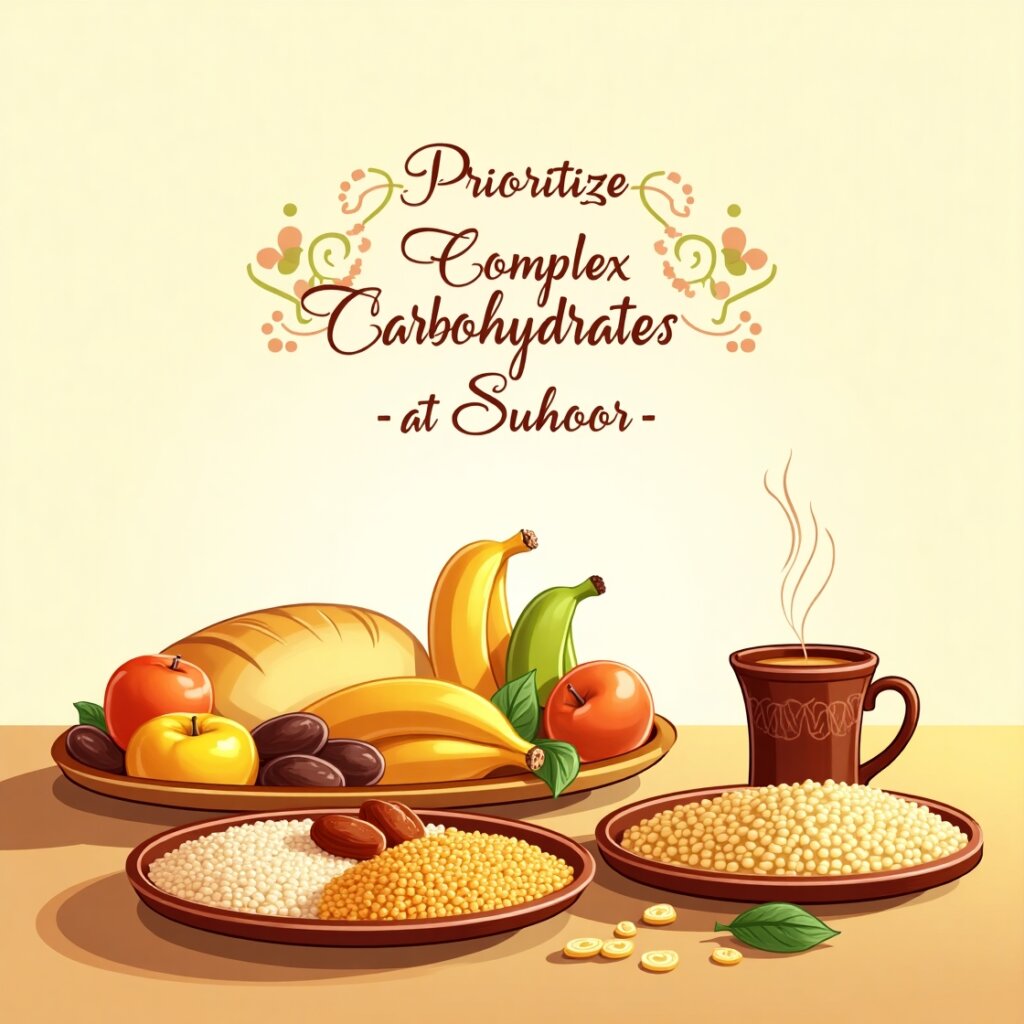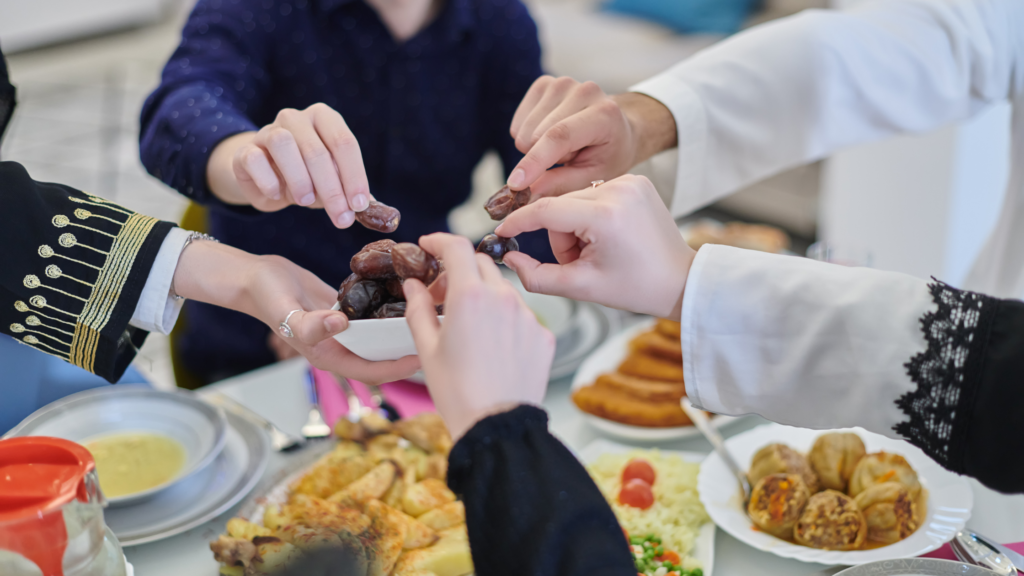
Table of Contents
Ramadan, the holy month of fasting in Islam, presents unique dietary challenges and opportunities. Following proper Ramadan diet tips can make all the difference between a month of fatigue and discomfort versus a spiritually and physically fulfilling experience. As Muslims around the world prepare for this sacred time of reflection and devotion, understanding how to nourish your body during non-fasting hours becomes essential.
As a nutritionist and dietary consultant with over 15 years of experience, I, Dt. Anup Agharwal, have worked with hundreds of patients to develop effective Ramadan diet tips that combine traditional wisdom with modern nutritional science. These evidence-based guidelines are designed to help you maintain energy levels, prevent dehydration, and support overall wellbeing throughout the fasting period.
Understanding the Challenges of Ramadan Fasting
Fasting from dawn until sunset means your eating pattern undergoes a significant shift during Ramadan. Without proper nutrition during suhoor (pre-dawn meal) and iftar (meal to break the fast), you may experience:
- Extreme fatigue and low energy
- Headaches and irritability
- Dehydration
- Difficulty concentrating
- Digestive issues
- Nutritional deficiencies
Implementing effective Ramadan diet tips can help prevent these issues and ensure you benefit fully from this sacred month without compromising your health.
Ramadan Diet Tips
Prioritize Complex Carbohydrates at Suhoor

“The pre-dawn meal sets the foundation for your entire day of fasting,” I always tell my patients. “Focus on slow-digesting carbohydrates that provide sustained energy.”
Recommended Suhoor Foods:
- Oatmeal with nuts and seeds
- Whole grain bread with eggs
- Brown rice with lentils
- Quinoa porridge with fruits
These foods release energy slowly throughout the day, helping you avoid the energy crashes associated with simple carbohydrates like white bread or sugary cereals. My clinical observations have shown that patients who follow this approach report significantly less fatigue during fasting hours.
Hydration Strategy Beyond Water

While drinking plenty of water during non-fasting hours is obvious, I recommend a more comprehensive approach to hydration based on my research.
“Water alone isn’t enough,” I emphasize in my nutrition consultations. “Include natural hydrators in your Ramadan diet tips plan.”
Hydration Boosters:
- Coconut water for electrolytes
- Watermelon, cucumber, and celery
- Homemade fruit infusions without added sugar
- Yogurt-based drinks like lassi
Aim to consume at least 2-3 liters of fluids between iftar and suhoor, but avoid caffeinated beverages which can increase dehydration. My studies have shown that distributed hydration is more effective than consuming large amounts at once.
Break Your Fast Mindfully with Dates

Following the prophetic tradition, dates are ideal for breaking your fast. “Dates aren’t just symbolic—they’re metabolically perfect for iftar,” I explain to my patients.
Dates provide:
- Instant natural sugar for quick energy
- Fiber to prevent blood sugar spikes
- Essential minerals like potassium and magnesium
- Natural enzymes that help digestion
My recommendation: “Pair 2-3 dates with a glass of water or milk, then pause for 10 minutes before continuing your meal. This gives your body time to adjust and prevents overeating.”
The Three-Stage Iftar Approach

Rather than consuming one large meal after sunset, I advocate for a three-stage approach based on digestive physiology:
Stage 1 (Immediate Breaking): Dates and water/milk Stage 2 (30 minutes later): Light soup, salad, or fruit Stage 3 (60 minutes later): Main meal with balanced nutrients
“This gradual approach is one of my most important Ramadan diet tips,” I explain to my patients. “It prevents insulin spikes, digestive distress, and allows proper nutrient absorption.”
Incorporate Protein at Every Meal

Protein is crucial during Ramadan as it helps maintain muscle mass and promotes satiety. My clinical research emphasizes including quality protein sources at both suhoor and iftar.
Recommended Protein Sources:
- Eggs, chicken, and fish
- Lentils, chickpeas, and beans
- Greek yogurt and cheese
- Nuts and seeds
“A common mistake I see in my practice is focusing too much on carbohydrates and forgetting protein,” I note. “Aim for at least 20-30 grams of protein at each meal to maintain lean muscle mass during fasting.”
Mindful Salt Consumption

While seasoning is important for flavorful meals, excessive salt can increase thirst during fasting hours and may contribute to hypertension in susceptible individuals.
“I advise using herbs and spices instead of heavy salt for flavor,” I tell my patients. “This is especially important when following Ramadan diet tips for hot climates or for those with blood pressure concerns.”
Salt-Reducing Flavor Enhancers:
- Fresh herbs like mint, parsley, and cilantro
- Lemon juice and vinegars
- Aromatic spices like cumin, coriander, and turmeric
- Garlic and ginger
Avoid Fried Foods and Excessive Sweets

Traditional Ramadan tables often feature fried samosas, pakoras, and sweet desserts. While these are cultural favorites, my research shows they can cause digestive discomfort, inflammation, and energy crashes.
My dietary advice: “Limit fried foods to once or twice a week as a special treat. Instead, opt for baked or air-fried alternatives and choose naturally sweet fruits for dessert most days.”
Healthier alternatives I recommend include:
- Baked spring rolls instead of fried samosas
- Fresh fruit chaat instead of sugary desserts
- Grilled kebabs instead of fried cutlets
- Dates stuffed with nuts instead of commercial sweets
Strategic Meal Planning

“Preparation is key to successful Ramadan nutrition,” I emphasize in my nutrition workshops. “Plan and prep your meals in advance to ensure balanced nutrition throughout the month.”
My Ramadan diet tips for meal planning include:
- Preparing and freezing portion-controlled meals
- Cutting vegetables in advance for quick cooking
- Making smoothie packs for suhoor
- Preparing healthy snacks for between iftar and bedtime
This approach not only ensures nutritional adequacy but also reduces the stress of daily meal preparation during a time meant for spiritual reflection.
Combat Constipation with Fiber

Changes in eating patterns often lead to constipation during Ramadan. My clinical experience shows that increasing fiber intake effectively prevents this common issue.
Fiber-Rich Foods to Include:
- Whole grains like brown rice and whole wheat bread
- Fresh fruits with edible skins
- Vegetables, especially leafy greens
- Chia seeds and flaxseeds soaked in water
“Add a tablespoon of chia seeds to your suhoor yogurt or oatmeal,” I suggest. “This small addition makes a significant difference to digestive health by forming a gel-like substance that promotes regularity.”
Balance Blood Sugar with Low-Glycemic Foods

Stable blood sugar is essential for maintaining energy during fasting hours. My research in nutritional biochemistry has shown that focusing on low-glycemic foods provides steady energy without the crashes.
Low-Glycemic Food Choices:
- Basmati rice instead of short-grain rice
- Sweet potatoes instead of white potatoes
- Whole fruits instead of fruit juices
- Whole grain breads instead of white bread
“Combining these foods with healthy fats and proteins further slows digestion and provides sustained energy,” I explain to my patients. “This is particularly important for those with pre-diabetes or insulin resistance.”r
Sample Meal Plan Following Ramadan Diet Tips
Suhoor (Pre-dawn meal):
- 1 cup overnight oats with chia seeds, almonds, and a small banana
- 2 boiled eggs
- 1 cup milk or yogurt
- 500ml water and a small cup of herbal tea
Iftar (Breaking fast):
Immediate:
- 3 dates with a glass of water
After prayer (30 minutes later):
- Lentil soup with vegetables
- Small green salad with olive oil dressing
Main meal (60 minutes later):
- Grilled chicken or fish
- Brown rice or quinoa
- Roasted vegetables
- Small serving of fresh fruit
Before bed:
- Herbal tea
- A small handful of nuts
- 1-2 glasses of water

Get an Extra 10% Off – Fill out the Form Below!
Special Considerations for Different Groups
Based on my clinical experience, I note that Ramadan diet tips should be adjusted for different physiological needs:
For athletes and physically active individuals:
- Increase protein intake to 1.5-2g per kg of body weight at both meals
- Consider BCAAs and electrolyte supplements
- Focus on nutrient-dense foods with higher caloric content
For those with health conditions:
- Diabetics should work closely with healthcare providers to adjust medication timing
- Heart patients should avoid high-sodium foods and monitor fluid intake
- Those with digestive issues should emphasize easily digestible proteins and well-cooked vegetables.
Making the Most of Ramadan Nutrition

Implementing these Ramadan diet tips can transform your fasting experience from challenging to spiritually and physically rewarding. The key is preparation, mindfulness, and balance.
“Ramadan is not just about abstaining from food and drink,” I remind my patients. “It’s about nourishing your body mindfully during eating hours so you can focus on spiritual growth during fasting hours.”
By focusing on quality nutrition, proper hydration, and mindful eating practices, you can embrace the holy month with vitality and wellness, allowing for deeper spiritual connection without physical discomfort.
Remember that these Ramadan diet tips should be personalized to your specific needs. Consider consulting with a healthcare provider if you have underlying health conditions or specific nutritional concerns before making significant changes to your Ramadan eating plan.

🎯 10+ years of Experience
🎓 10k+ Trained ( 📍 Jaipur )
💪 Helping change people’s lives
🌿 Most trusted lifestyle counselor



